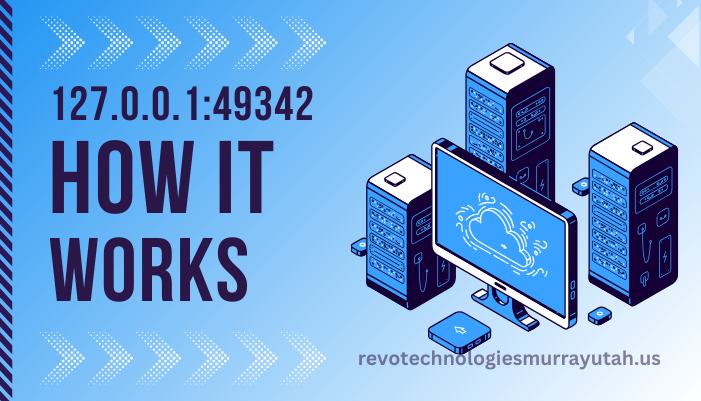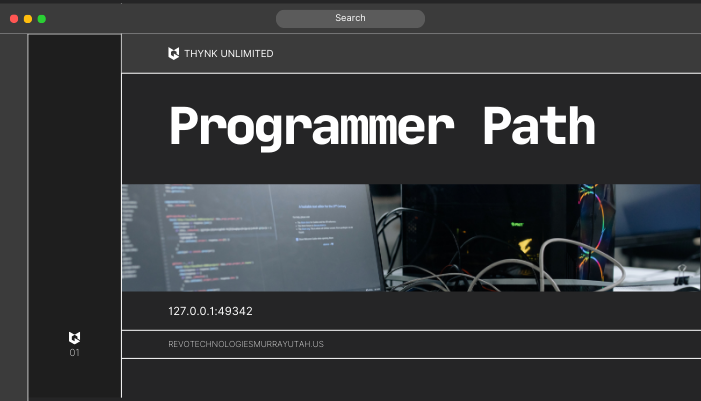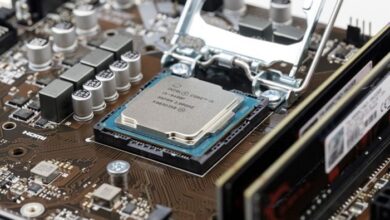127.0.0.1:49342: How it works, How to fix, Benefits and insights

When you first encounter the term 127.0.0.1:49342, it might seem like a random string of numbers and punctuation. However, this combination holds significant meaning in the world of networking and computing.
The IP address 127.0.0.1 is commonly known as the “localhost” or “loopback” address. It is used to establish an IP connection to the same machine or computer being used by the end-user. The port number 49342, on the other hand, is a specific communication endpoint for the application or service running on the localhost.
Imagine you’re working on a project that requires testing a web application. Instead of deploying it to a live server, you can use 127.0.0.1:49342 to run the application locally on your machine. This allows you to test and debug the application in a controlled environment without affecting the live server. It’s like having a private playground where you can experiment and make changes without any real-world consequences.
Why 127.0.0.1:49342 Matters

The significance of 127.0.0.1:49342 goes beyond just being a technical term. It represents a fundamental concept in networking that allows developers and IT professionals to create, test, and troubleshoot applications efficiently. By using the localhost address, you can ensure that your application is running correctly before deploying it to a live environment. This helps in identifying and fixing any issues early in the development process, saving time and resources in the long run.
Moreover, 127.0.0.1:49342 is essential for maintaining security and privacy. When you run an application on the localhost, it is not accessible from the outside world. This means that any sensitive data or configurations remain protected within your local environment. It’s like having a secure vault where you can store and test your valuable assets without any risk of exposure.
Real-Life Examples of 127.0.0.1:49342
Let’s take a look at some real-life scenarios where 127.0.0.1:49342 plays a crucial role. Suppose you’re a web developer working on a new e-commerce website. Before launching the site, you need to ensure that all the features, such as the shopping cart, payment gateway, and user authentication, are functioning correctly. By using 127.0.0.1:49342, you can run the website locally on your machine and perform thorough testing. This helps in identifying any bugs or issues that need to be addressed before going live.
Another example is when you’re developing a mobile application that requires a backend server. Instead of setting up a remote server, you can use 127.0.0.1:49342 to run the backend locally on your machine. This allows you to test the app’s functionality and ensure seamless communication between the frontend and backend components. It’s like having a mini-laboratory where you can conduct experiments and fine-tune your application.
The Technical Side of 127.0.0.1:49342

From a technical perspective, 127.0.0.1:49342 is a combination of an IP address and a port number. The IP address 127.0.0.1 is reserved for loopback purposes, meaning it always points to the local machine. The port number 49342 is an arbitrary number assigned to a specific service or application running on the localhost. When you enter 127.0.0.1:49342 in your browser or application, it establishes a connection to the specified port on the local machine, allowing you to access the service or application.
In networking, the concept of loopback addresses and port numbers is crucial for communication between different components of a system. The loopback address ensures that data sent from the local machine is routed back to itself, enabling efficient testing and troubleshooting. The port number, on the other hand, acts as a unique identifier for different services or applications running on the same machine. This allows multiple services to operate simultaneously without any conflicts.
Read about
The Truth About the TruLife Distribution Lawsuit
Conclusion
In conclusion, 127.0.0.1:49342 is more than just a string of numbers. It represents a powerful tool for developers and IT professionals to create, test, and troubleshoot applications in a secure and controlled environment. By understanding the significance of 127.0.0.1:49342, you can leverage its potential to enhance your development process and ensure the smooth functioning of your applications.
FAQs of 127.0.0.1:49342
What is 127.0.0.1:49342 used for?
127.0.0.1:49342 is used to establish a connection to a service or application running on the local machine. The IP address 127.0.0.1 is known as the localhost or loopback address, and the port number 49342 is a specific communication endpoint for the application.
How do I use 127.0.0.1:49342?
To use 127.0.0.1:49342, you need to have an application or service running on your local machine that listens on port 49342. You can then access this application by entering 127.0.0.1:49342 in your web browser or application.
Why is 127.0.0.1:49342 important for developers?
127.0.0.1:49342 is important for developers because it allows them to test and debug applications locally without affecting the live server. This helps in identifying and fixing issues early in the development process, ensuring the smooth functioning of the application before deployment.
Can I access 127.0.0.1:49342 from another computer?
No, 127.0.0.1:49342 is only accessible from the local machine. The localhost address 127.0.0.1 is used to establish a connection to the same machine, so it cannot be accessed from another computer.
What are the security benefits of using 127.0.0.1:49342?
Using 127.0.0.1:49342 provides security benefits because the application or service running on the localhost is not accessible from the outside world. This ensures that any sensitive data or configurations remain protected within your local environment.





